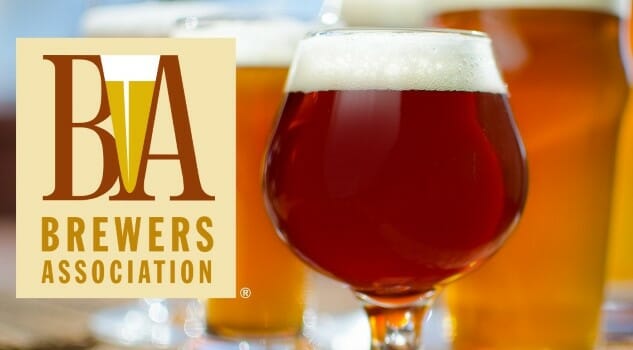What is a “craft brewer”? Brewers Association Changes the Definition Again, as the Words Become Increasingly Meaningless

The definition of “craft brewer,” as laid out by the Brewers Association, the beer industry’s advocacy trade group, has already been changed three times since 2007. The organization has taken to calling it a “living document,” so that the definition can continue to evolve and represent craft brewers as the industry goes through the type of rapid growth and change that is its hallmark. It’s impossible to miss, though, that the instances of change in the craft beer definition have had a tendency to benefit primarily two bodies: The nation’s second largest craft brewer (Boston Beer Co.) and the BA itself.
If you’re sensing a little bit of cynicism in that opening, it’s not a new development. As I wrote back in January: The time of “craft” as a useful descriptor in this industry has essentially come to an end. As the term has become watered down and filled with conflicting exceptions, it simply isn’t a useful term for the public to fall back on as a benchmark of quality or thoughtful consumption. The new push is behind the more concretely defined BA concept of “independence,” which means that consumers now have to answer the question of how much brewery independence is worth to them.
Now it’s time for another proposed change. After the last decade made alterations to the amount of barrels a craft brewery was allowed to produce while remaining “small,” and the ingredients a craft brewer could use while remaining “traditional,” the latest proposal from the BA board is to drop the “traditional” requirements entirely. In an email to members, Left Hand Brewing Founder Eric Wallace, who serves as chair of the BA board, laid out the organization’s rationale and the results of a survey of 1,000 BA members.
“What we learned from this survey is that nearly half of the membership is already brewing — and more than half would consider making in the future — products that fall outside the existing Brewers Association traditional tier, such as cider or mead or other products taxed as beer (hard seltzers/flavored sugar beverages/sake/alcoholic kombucha, etc.). Nearly half surveyed said they would consider producing beers containing CBD or THC should the regulatory structure change federally around those potential products. By adjusting the definition, we are being more inclusive of the needs of our voting members.”
A fairly well-reasoned argument there, but not one that mentions by name the one huge elephant in the room: Boston Beer Co. Sure, other breweries might one day need to face the possibility of no longer being able to bear the “craft brewer” label because they’re drifted into primarily manufacturing cider or malternative beverages, but Samuel Adams is facing that jumping off point right now.
As of the end of 2018, Boston Beer Co. is teetering on the edge of no longer being able to primarily call itself a “beer company.” As the growth of the craft segment has slowed, and the overall beer market has continued to cede market share to wine and spirits, less Sam Adams beer has been sold than in 2017. At the same time, the areas of the company that have seen growth have instead been hard seltzer, cider, alcoholic tea and “malternative beverages.” It’s unclear whether these non-beer products officially make up 50 percent or more of Boston Beer Co.’s production, but the threshold may have already been surpassed. And because the current Brewers Association definition of “traditional” states that “a majority” of the brewer’s production needs to be beer, once that threshold is passed, Boston Beer Co. cannot be labeled as “craft,” per the BA definition.
A first-time reader would doubtlessly be saying “why does this matter?” right about now. The reason it matters to the Brewers Association is simple: As the country’s second largest brewery that currently qualifies as “craft” (after Yuengling), Boston Beer Co. represents almost 8 percent of total craft beer volume, according to Brewbound. Therefore, if Samuel Adams is purged from the rolls, the BA’s annual industry report immediately takes on a grim outlook, and the organization would be forced to report a year in which overall “craft beer” growth was negative rather than positive. Simply put, they can’t allow this to happen from a purely PR perspective, as it would imply to outsiders that the craft beer industry was in decline.